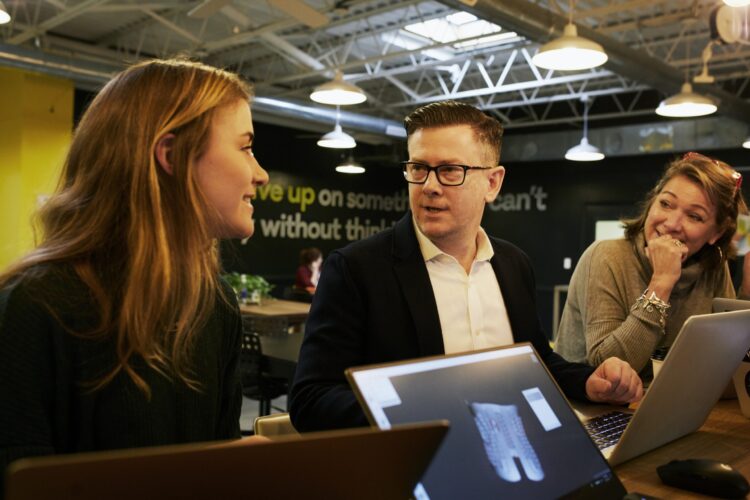Each year, many editors look forward to an annual selection of editing conferences—held both virtually and in-person. In addition to these, freelance editors have even more conferences to consider: those that their preferred clients attend.
Why should you attend conferences aimed at your clients?
You’ll increase your knowledge about the topic you edit. The more you know about the topic you edit, the better editor you’ll be—and the more valuable you’ll be to your clients.
Says science editor and editor trainer Adrienne Montgomerie, “Going to clients’ conferences keeps me up on current trends and exposes me to broad ideas in the field as well as emerging ones.”
You’ll network with potential clients. Especially for freelancers, getting to know people from the industry you edit in is invaluable. Let’s face it: who you know still counts for a lot in the business world.
You may be the only editor in the room. Think about it: if you attend a conference of 500 editors and you meet one book cover artist, that artist is going to stand out in your mind. Want to get that cushy job or tier-one client? You need to be memorable. Being the only editor your potential clients know “is a powerful marketing position,” says Montgomerie.
Attending the Conference
Before you sign up, research the conference. Be sure that the people who would hire you are the ones who will attend the conference. Editor and trainer Laura Poole edits for book and journal publishers, particularly university presses. She attended Book Expo America one year because lots of publishers attend.
“After about 10 minutes on the floor of the show, I realized the mistake,” says Poole. “Publishers were there, but not the production team, who hires freelancers. I tried giving my card to one or two people but quickly realized that it was a lost cause.”
Know your goals before you arrive. You might want to increase your brand’s visibility or meet key people. Don’t bet on winning new clients, however. That comes later, after you’ve established relationships.
Once you’re at the conference, make it a priority to talk to people and hand out your business card.
Leveling Up Your Participation
You can use the conference to build your relationships with existing clients, too. Email them to let them know you’ll be attending, advises Montgomerie. Treat your favorite client to coffee or a lunch to let them know you find them valuable.
Will there be exhibitors at the conference? Have an exhibitor’s table! According to Samantha Enslen, owner of editing agency Dragonfly Editorial, “Paying to exhibit shows a broader support of the organization and the people who attend the conference. It also gives me a different way to interact with conference-goers.”
Offer to sit on a panel or present a topic. Remember that you’re a writing expert. You could present quick tips for professional writers: how to write headlines, how to streamline your writing, how to recycle copy for more than one touch point, or how to edit your own work.
Of speaking at conferences Enslen says, “I felt like folks’ perception of me instantly changed from ‘vendor’ to ‘knowledgeable colleague.’ And we’ve consistently added new clients that have come directly from connections made at the conference.”
After the conference, be sure to follow up with your most promising leads. Email clients who didn’t attend to share your experience. Says Montgomerie, “After, I may email clients directly to share interesting or useful information that I got at the conference. This positions me as an expert in the field.”
Concludes Enslen, “If you can identify a conference where lots of your potential clients will be, pull out all the stops to get there. Don’t expect instant results, especially if you just go as an attendee. Think of conference-going as a long-term investment—building name recognition and trust, so that when a potential customer has a need that matches your skill set, you’re the one they call. That call may come six months after the conference—or two years after the conference!”
A version of this article originally published on 03/18/16 on Copyediting.com.


